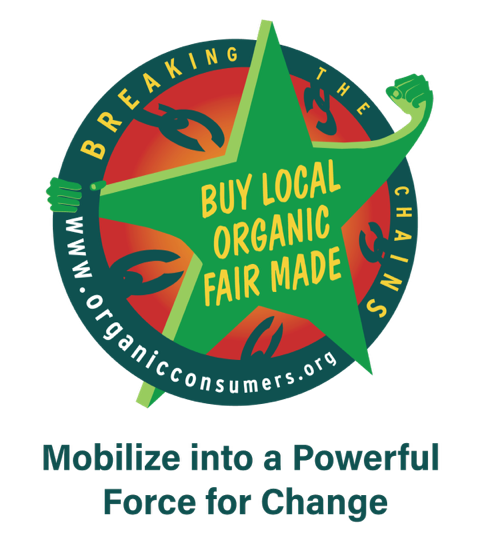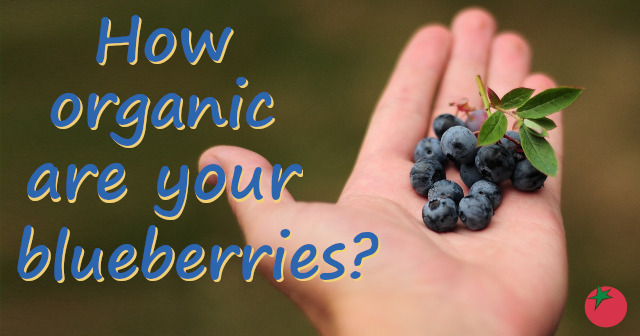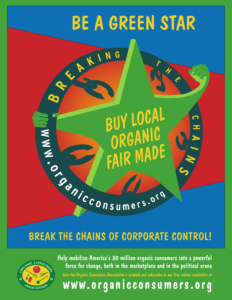Breaking the Chains
OCA’s Campaign to Mobilize Socially Responsible Consumers into a Powerful Force for Change
OCA’s Breaking the Chains Campaign is focusing consumers’ attention on how each purchasing decision can lead to a safer, greener, and more equitable society. Millions of green minded consumers around the world have broken the chains of corporate control in their own lives, by supporting organic, Fair Made, and locally produced products and businesses.

Most Recent Headlines:
Take Action Today:
Featured Videos:
How To Buy Organic Local Foods To Reduce Food Miles
Food Is Free on Over Grow the System
Organic Bytes Newsletter
Read Current Issue — April 25, 2024
Newsletter #848: How Are Your Organic Blueberries Grown?

In This Issue:
- Are Your Blueberries REAL Organic?
- Growing Organic Blueberries Right
- How To Eat 30 Plants a Week To Boost Gut Health
- Small-Scale Farmers Can Harness Regenerative Agriculture to Lead the Way to a Food-Secure Future
- Ronnie
- What’s Safe To Eat? Here Is the Pesticide Risk Level for Each Fruit and Vegetable
- Plenty of Food for Everyone
- Roundup Weedkiller in Organic?
- What Lives in Your Gut?
- Free Speech 4 Health
- Other Essential Reading and Videos for the Week
Recommended Resources:
Video Library
Locavore Movie Trailer
Junk Food

